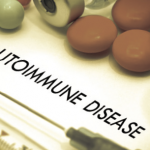 A recent multi-center, retrospective study evaluated the retention rates and discontinuation reasons for biologic disease-modifying antirheumatic drugs (bDMARDs) in rheumatoid arthritis (RA) patients aged 65 years and older. The study patients (n=661) were selected from RA patients in the Kansai Consortium for Well-Being of Rheumatic Disease Patients (ANSWER; N=4,461) cohort. The cohort is an observational multi-center registry of RA patients in Japan’s Kansai district.1
A recent multi-center, retrospective study evaluated the retention rates and discontinuation reasons for biologic disease-modifying antirheumatic drugs (bDMARDs) in rheumatoid arthritis (RA) patients aged 65 years and older. The study patients (n=661) were selected from RA patients in the Kansai Consortium for Well-Being of Rheumatic Disease Patients (ANSWER; N=4,461) cohort. The cohort is an observational multi-center registry of RA patients in Japan’s Kansai district.1
The study examined the use of seven bDMARDs in these patients from 2009–2018. The treatments were abatacept (n=272), tocilizumab (n=234), etanercept (n=184), golimumab (n=159), infliximab (n=101), adalimumab (n=97), and certolizumab pegol (n=51), inclusive of 1,098 treatment courses. At baseline, patient demographics included a mean age of 71.7 years, a mean RA duration of 10.5 years, a mean DAS28-ESR score of 4.6, a CDAI of 17.3 and an HAQ-DI score of 1.3. Additionally, at baseline, 81% of patients were women, 81% were rheumatoid factor positive and 60% were biological DMARD-naive. The mean concomitant prednisolone dose was 2.8 mg daily for 46% of patients, and the mean methotrexate dose was 4.4 mg per week for 56% of patients.
Drug retention, defined as the duration until definitive treatment interruption, was evaluated retrospectively. Discontinuation reasons were categorized as lack of effectiveness, disease remission, toxic reactions and non-toxic reasons. Toxic reactions included infection and systemic reactions, as well as hematologic, pulmonary, renal and/or cardiovascular complications and malignancies. Non-toxic reasons for discontinuation included patient preference or hospital change.
At 36 months, drug cause specific , cumulative discontinuation rates were estimated using the Kaplan-Meier method. Researchers used Cox proportional hazard modeling to adjust results for potential clinical confounders, such as age, sex, disease duration, concomitant prednisolone and methotrexate. Results were also adjusted for a treatment start date and the number of bDMARDs used.
The Results
By Month 36, 562 (51.2%) treatment courses were stopped. Physicians were only required to report one reason for discontinuation. Of these, 275 (25%) were stopped due to lack of effectiveness, 130 (12%) were stopped due to toxic events, 106 (10%) were stopped due to non-toxic events and 51 (5%) were stopped due to patient remission.
Among the seven bDMARDs evaluated, abatacept had the highest overall retention rate, at 78.1%, and the lowest discontinuation rate for lack of effectiveness and toxic adverse events. Total retention rates for other bDMARDs were 66.8% for tocilizumab, 64.8% for golimumab, 57.6% for adalimumab, 55.6% for certolizumab pegol, 52.5% for infliximab and 50% for etanercept. Drug retention rates due to remission were 100% for certolizumab pegol, 97.7% for golimumab, 97.5% for adalimumab, 96.8% for abatacept, 94.8% for infliximab, 94.4% for etanercept and 94.2% for tocilizumab. In the study, abatacept and certolizumab pegol showed higher retention rates compared with other tumor necrosis factor inhibitors (TNFi’s).



